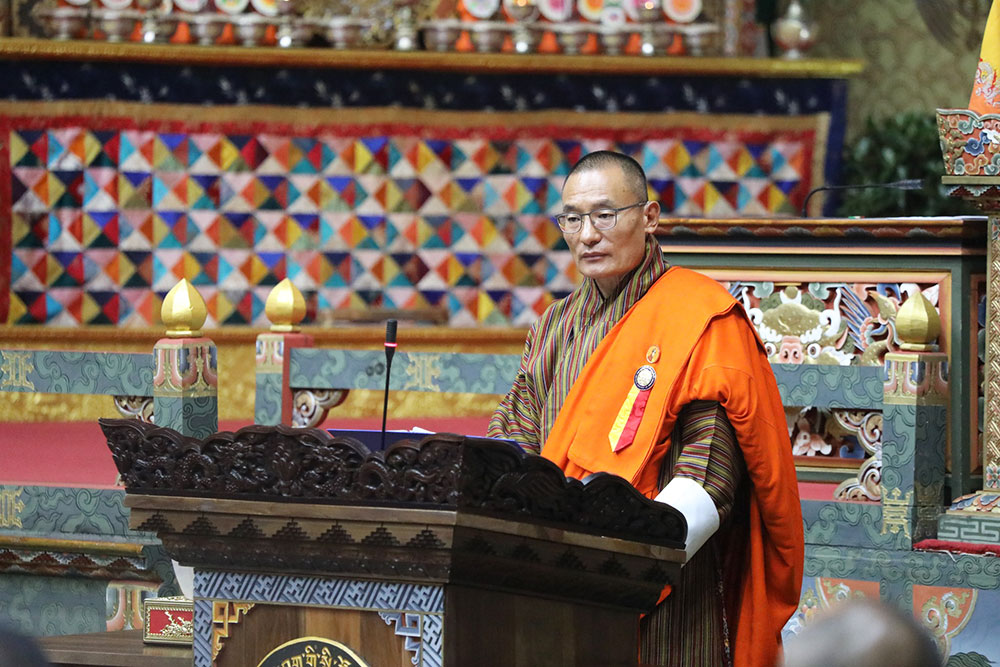
Revival and expansion of the economy is the only solution
to address overseas migration, according to the Prime Minister
Prime Minister Tshering Tobgay, in his first State of the Nation report yesterday, highlighted the alarming trend of Bhutanese leaving the country for better opportunities overseas as the most pressing issue facing the country today.
So far, approximately 64,000 Bhutanese, which is around nine percent of the total population of the country, have migrated abroad.
“Today, Bhutan stands at a crossroads. If we are not able to unite, work together, and choose the right path, our country will suffer serious repercussions,” Lyonchhen said. “Our beloved country faces an unprecedented existential crisis.”
While acknowledging the benefits, Lyonchhen warned of the potential risks and challenges if this trend continues. He emphasised that human resources are crucial for economic progress in a small country with a limited population. A further decrease in population could significantly impact the economy’s foundations, potentially leading to an economic downturn.
The Prime Minister pointed out that the departure of skilled workforce affects the economy and delivery of public services. “Resignations among teachers impact the quality of education, while the departure of doctors and nurses leads to deteriorating health services,” Lyonchhen said.
The Prime Minister said that the ongoing shortage of skilled professionals, including technicians, engineers, and experts in banking and law, exacerbates the situation and hinders the country’s development.
Lyonchhen said that many educated Bhutanese youth struggle to find meaningful employment, making them attractive candidates for foreign employers. This trend leads to an increasing number of Bhutanese youth seeking opportunities abroad.
“If we are not able to address the situation today, our youth abroad will not be motivated to return home.
Should these challenges persist, there is a real possibility of our country becoming increasingly depopulated,” Lyonchhen said.
The Prime Minister stated that the ability to provide meaningful employment opportunities within the country hinges on the current state and growth prospects of the economy.
The Prime Minister said that reviving and expanding the economy is the only solution to address these challenges.
He said at the forefront of these efforts is the historic Gelephu Mindfulness City, conceived from His Majesty The King’s profound wisdom.
To revive the economy, which has been adversely impacted by the Covid-19 pandemic, the government has instituted a Nu 15 billion Economic Stimulus Programme.
This fund, the Prime Minister said, will be distributed as low-interest loans through financial institutions to various sectors, stimulating growth in the private sector, small industries, tourism, agriculture, livestock, construction, transportation, and media and film industries.
The 13th Plan is further going to stimulate the economy. The government has allocated Nu 68 billion for infrastructure development, Nu 10 billion for ICT development and Nu 72 billion for local government projects.
The government has allocated Nu 60 billion for human resource development to expand health, educational, vocational, and technical training institutes.
Over the next five years, the government plans to increase the installed capacity of hydropower generation by 3,119 MW, bringing the total installed capacity to approximately 5,500 MW. For this initiative, the government has allocated a budget of Nu 527 billion, outside the 13th Plan.












